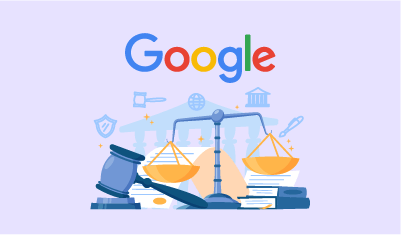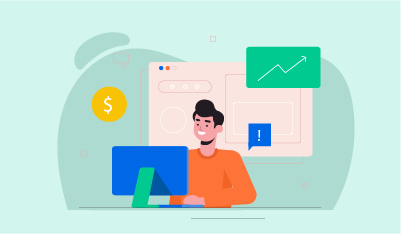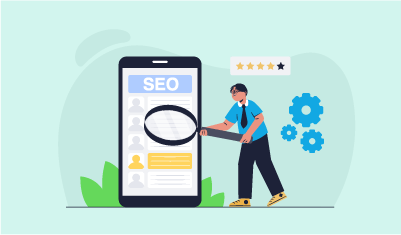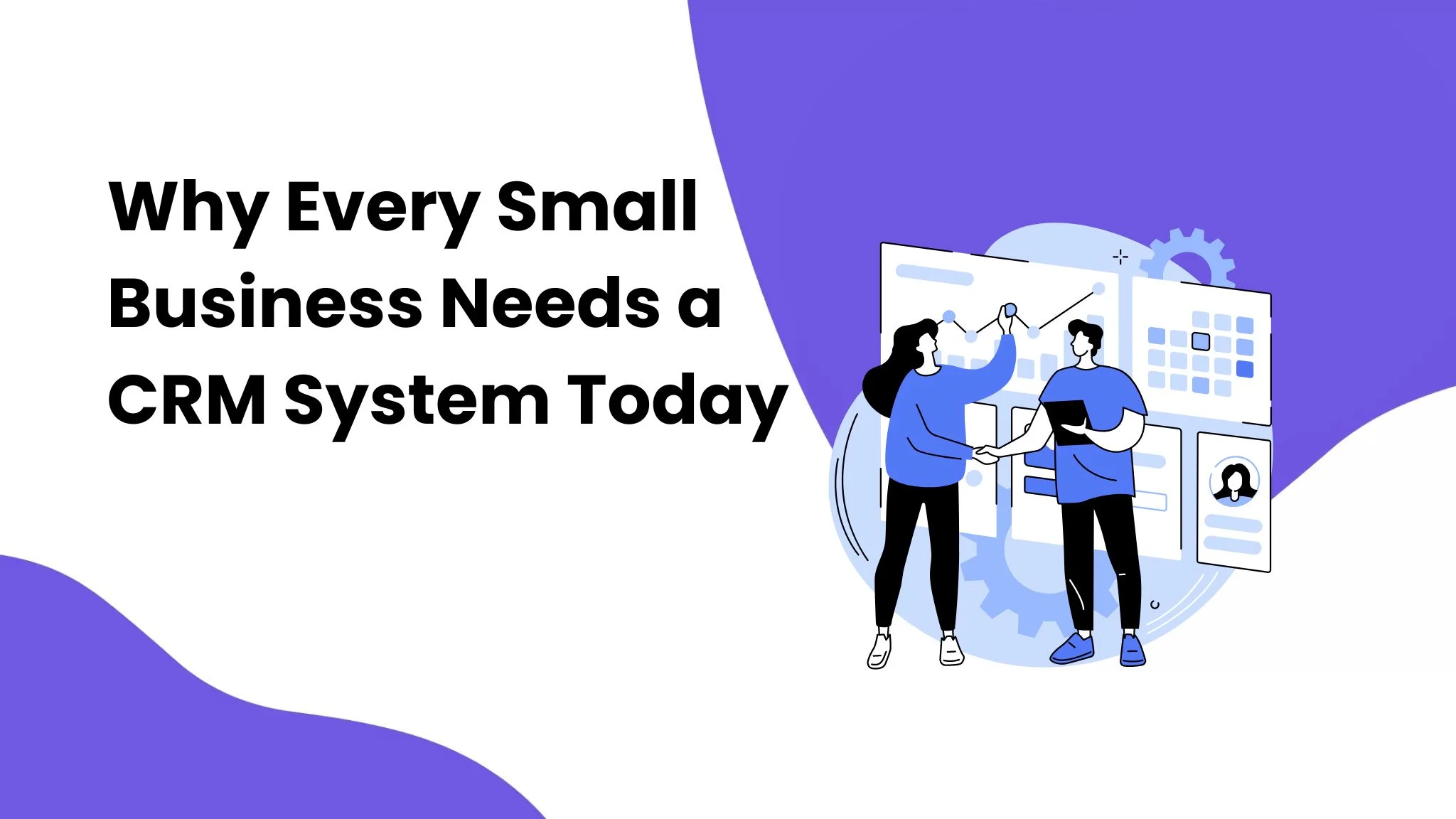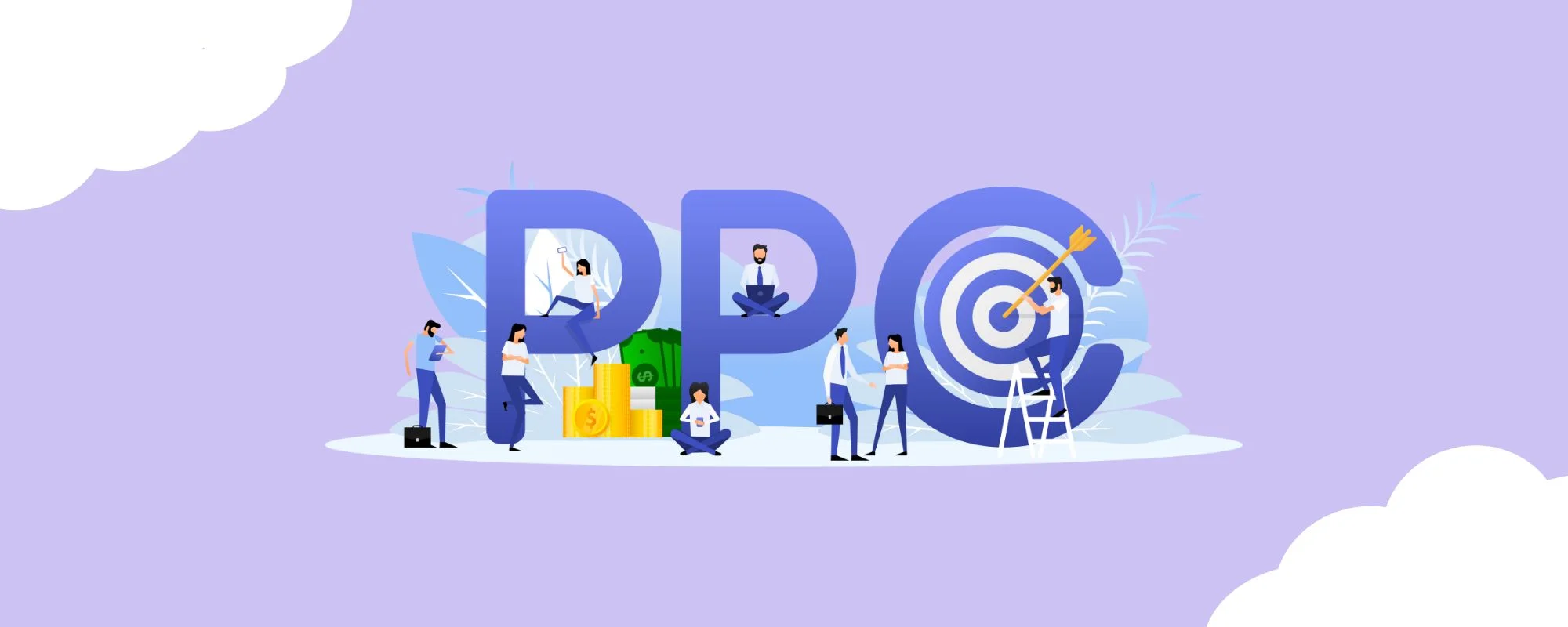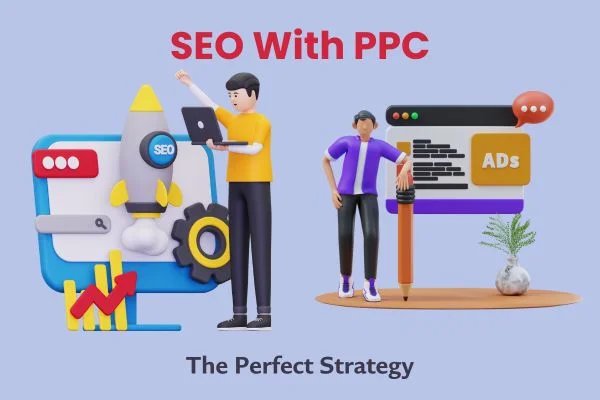SEO experts know getting a ranking on Google is not a cakewalk. And Google certainly operates in the most unbending ways. Google tweaks and fine-tunes its algorithms so any webpage that deserves to be ranked at the top gets its ranking. However, with putting the best at the top comes the penalty for those who do not meet the standards. Yes! Google penalizes too!!! And most of the time this penalty is well deserved.
Let’s look at what’s Google Penalty: Since the year 2000, there’s been constant change in the ranking algorithms of Google. We witnessed the very growth of the SEO industry which is largely defined by those norms. As Google continued to roll out novel and improved algorithms, we saw the elimination of content which was of poor quality. And at the same time, the good quality content got the perks of being ranked higher. Google's penalty is evident in the Penguin update which came in 2012. When it hit, more than 1 in 10 websites were completely wiped out from Google search results overnight because of the quality issue. This was when SEO professionals began to take content strategy seriously.
How to identify Google Penalty? Automatic or manual, Google penalty is not good for your brand. While in manual one, you may be informed, that automatic is caused by the evolved algorithms. And most of the time it can strike with surprise. Look for these clues to know the algorithmic penalties by Google – 1) You are not getting a good ranking for your brand website. SEO expert says if not all, your website must earn brownie points and get ranked at least for 1 select keyword. 2) Your webpage which was ranking at one suddenly sees a dip to second or third position in due course on its own 3) You see your website being wiped out completely from Google cache, just overnight 4) You look for your listing on Google and find it as a webpage of your site but not the homepage If you have observed any of these factors on Google for your website, then you are surely facing a penalty.
So why Google has penalized you? Google continually keeps on updating its content indexing system through tweaks and revisions. However, there’s no way you can completely understand how these tweaked algorithms work, making it all the more difficult to understand the reason behind the penalty imposed upon your website. Our SEO experts however have put together some 50 common reasons why Google will penalize your website. Here they are –
1. Duplicate Content Plagiarism is a legitimate and punishable offense, duplicate content is a big NO. And as far as Google is concerned, it considers duplicate content useless. So, when you are drafting that content for your website, ensure you keep it unique. There are some good tools like CopyGator and Copyscape available online to check if there’s any duplication in your content.
2. Buying Backlinks Most of us have a strategy of buying links which is a part of SEO. Many even state that buying backlinks has nothing to do with The google penalty. It may not be completely true though. Google may see this as a manipulation strategy to gain PageRank. Point is – you may end up being caught in some vicious cycle of buying bad links and you will have to pay for it.
3. Excessive Reciprocal Links Reciprocal link was initially used as a good marketing strategy. However, eventually many started to overuse it and soon became abusive. So, your swapping of links with your clients may be seen as manipulation if you are overdoing it that is.
4. Internal 404s The one thing that Google hates the most is internal errors and problems on the website. So ensure that there are no 404 errors on your website, or else you be prepared to be penalized.
5. Overuse of H1 Hashtags H1 hashtags are used so Google could recognize the page content. However, overuse of H1 Hashtags could mean trying to boost a listing for a keyword and that could land you in a soup.
6. Linking to sites of different languages You may think this should not matter. However, what Google counts is the usefulness of links and your website. If you are linking your website to another site that has content in a different language, it may not be of any use to the users. This automatically downsizes your points.
7. Footer Links Fust be planned well. It’s not just space to fill in. Consider user experience. Usually, the footer has non-important SEO links. Some may put the links for navigation purposes too.
8. Content stuffed with Keywords You may read many rules about acceptable keyword density in the content. Remember not to fill your content with too many keywords. Overuse of keywords means a red flag for your webpage and you may be penalized for that.
9. Missing sitemap data Your website structure is analyzed by Google using XML sitemap. So ensure that it is available and you have updated and submitted your account of Webmaster tools.
10. Broken external links Be vigilant about your external links. Have them updated regularly. Make sure all the external links are working and users do not end up with 404s errors Else Google may take it as a careless approach towards your website and user experience.
11. Hidden Links Don’t try and make your links subtle or hide them. That can raise a question of suspicion. Ensure they are visible.
12. Hidden Content This is one of the most unethical techniques used for SEO. Text is disguised to manipulate the keyword weightage or the theme. Certainly, you are up for a penalty of you follow this.
13. Scraped content Pulling content from another website to bulk your pages may seem pretty innocent; however, it is seen as duplication by Google. So, if you have done this, it’s time to replace it with your original and unique content.
14. Overuse of Anchor Text SEO experts used to link keywords to emphasize their authority. However, when the Penguin update rolled out in 2012, it discouraged the overuse of anchor text linking pretty strongly. So, ensure that you remove all the forced and irrelevant keywords and replace them with the ones that are relevant and phrased well in apt English.
15. Website Timeout or Down Make sure that your website is up and running fine. If your website doesn’t load or show ta timeout, your users get irritated and Google certainly does not like that. It may well remove your website from the index rather than letting your users get irritated for a long. So be vigilant about it.
16. Neglecting hreflang You cannot neglect this one. If you happen to publish any content intentionally that’s duplicate, it notifies Google and that’s certainly not good.
17. Keyword domains Using keyword domains can be tricky. If you keep linking the anchor text to your keyword domain, it might look like manipulation to Google. So if you still wish to go ahead with a domain that matches your keyword exactly, then you better have a lot of good and relevant content to go with it.
18. Using blog networks is considered SERP manipulation by Google now. That’s the reason most blog network users have either shut down or deleted their incoming links. That’s exactly what you must do as well.
19. Rented Links are believed to be useful by SEO experts; paid for on monthly basis. They keep changing them infrequently. No matter what, they are still paid links.
20. Overuse of meta keywords is easy to manipulate and hence has been a matter of debate amongst SEOs. Ensure you do not use more than 5 meta keywords on one page.
21. Site-wide links Remember, Google is watching your website page navigation links as we do. It doesn’t like any unnatural link on your website like the one on the footer giving credit to the web developer. Remove it now!
22. Too many affiliate links AAffiliatelinks are ok to use provided you don’t stuff your website with too many of them. Overuse can raise a red flag and Google might identify your website content as not up to the mark. Many uusesredirect strategies for affiliate links to mask them. However, Google is smart to find that out too.
23. Slow speeds Hosting speed is affected by many reasons than you know. So, it’s difficult to detect where the issue lies. So we recommend using CDN or caching plugins for your website.
24. Comment Spam It’s good to have a comment section on your website. It’s a great way to let your users communicate with you. However, you should keep checking on it as there may be many spam comments too that get through, despite the commenting system having an automated spam detection system. So keep a close watch and don’t let it pile up.
25. Spun Content Content spinning is a theft. If you have paid peanuts for a good chunk of articles, chances are you have bought spun content. If Google penalty recognizes this, it would be too bad for your website.
26. Black Hat SEO advice Isn’t this one obvious? Writing about black hat SEO is promoting unethical ways which of course, Google doesn’t like. Publish about SERP manipulation using black hat SEO and be ready to be penalized.
27. Hacked Content Hacked websites are immediately removed from SERPs by Google. So be vigilant and quick to act on this.
28. Spam Reports Google allows you to report spam sites through an online form for spam site reporting. If your website gets submitted as spam, then Google may penalize you.
29. Speedy Link Building This is the biggest mistake you can make to boost your SEO. While you are very enthusiastic about ranking your website quickly overlinking is a bad idea. That indicates automation. So, go slow and think long term.
30. Forum Linking While forum linking is widely used by all of us, too much can make your actual post lose its identity. So while using forum links make sure you use good content and the good practices of linking.
31. Robots.txt flaws Robots.txt files help search engines deal with your site. Maybe you are excluding some pages from this for genuine reasons, but excessive blocking may lead to a penalty.
32. Hiding Sponsors If you have sponsors, it’s ok to show them. However, adhere to the rules, and void sponsors links at all costs.
33. Links to suspicious websites avoid associating with websites that into illegal practices or dubious work. Also, keep a check whether the site you are linked to has been penalized by Google in the past or not. If yes, then you better dissociate.
34. Over Optimization Don’t become overly obsessed with optimization for your website. Google doesn’t like it and recognizes it as an effort to eradicate your competition from the SEO list. So, check your strategy. Go slow. Be content-oriented, which means publish some good and natural content.
35. Landing pages Creating multiple landing pages to improve your ssite'sposition on SERPs can be a bad idea. Many companies try to accelerate their ranking process by creating one-page websites focused on a single keyword and trying and filter their users through these sites. As per Google, this is not a good practice.
36. Advertorials Advertorial pages are used pretty aggressively to manipulate search results. These pages usually have content filled with paid links. These can be a good reason for your penalty.
37. Redirection Redirecting your site using 301 redirects can transfer your penalty to a new location. However, once you remove the redirect, you will still have the penalty.
38. Excessive Outbound Links Too much swapping links with other websites that are not related to your website can be seen as an attempt for mutual SEO gain. While using outbound links, keep it relevant and natural.
39. Error Codes Google hates error codes, whether 302, 404, 500, or any. So, if your website page shows any of these errors, deal with them right away.
40. Malicious backlinks You should be watchful about this one as this may be an attempt to bring down your website from SERP listing through Google penalty. It may be because of my malicious backlink campaign.
41. Duplicate metadata Metadata gets duplicated unintentionally through some of the blogging tools and CMS platforms. It may indicate that you have duplicate content on your website. Hence not preferable.
42. Targeted Keywords Some keywords are abusively used and hence considered spam. Such keywords appear very frequently on spam sites. One fine example is ‘PayDay’. You don’t want to be thrown out of the SERP list because of your target keyword, right? So choose carefully.
43. Poor mobile websites If you have a poorly designed mobile website, Google may not be able to detect the link between your website and your mobile website. Make sure your website is mobile-friendly.
44. Smuggled Links You can’t fool Google by smuggling links into script files. Google is smart to analyze them and identify those weird and misplaced links.
45. Bad reputation domain Be careful while buying a domain name. if you pick up a domain name that had a bad reputation or a penalty in the past, most likely you would not succeed in getting your website to rank using the same. Rather go for another one.
46. Few outbound links Ore great for your SEO. Google checks your content about similar ones on the web. Not putting outbound links or having fewer may look like you are just trying to pull the traffic to your door unusually.
47. Prominent Ads Filling your pages with Ads subdues the main content. So make sure your balance it out and not let the ads dominate the page.
48. Content theft This is a serious offense and most difficult to deal with too. You may have to file DCMA takedown notices or pursue court to get the content removed. Request Google to remove the stolen content if you are penalized for that.
49. Quick Fixes many would claim to put your website on the top of the SERP list quickly. That’s a red flag. You rather do some ground work and have a long-term strategy.
50f Content Farm Content farming is largely used in the industry. Here the farm is a term used for sites with shallow or low-quality content. low-quality content is a big No in Google’s book. So, if you have such content, it’s better to get it redone by a professional.
Dealing with Google Penalty If you are facing Ga google penalty, worry not. Most of it can be fixed. However, the solution for all may not be the same. But here’s what you can do –
1) Compose yourself and identify the reason behind the penalty.
2) It’s time to look into all those troublesome links which have caused this. Just disown them.
3) If the penalty was manually imposed, ask for a reconsideration
4) And while you do all the legwork and realigning, wait patiently for Google to revert and take action In many cases, it may not be possible to remove the penalty. If you are in such a situation, you rather focus on rebuilding another site then fighting the penalty.

Written by: Jitendra Raulo
Jitendra Raulo is the Founding Director at Aarav Infotech India Pvt. Ltd., a leading Web Design and Digital Marketing Company with 11+ years of experience and having headquarter in Mumbai, India, and Support Centre at Bhubaneswar, India, he is actively working with Start-ups, SMEs and Corporations utilizing technology to provide business transformation solution.
